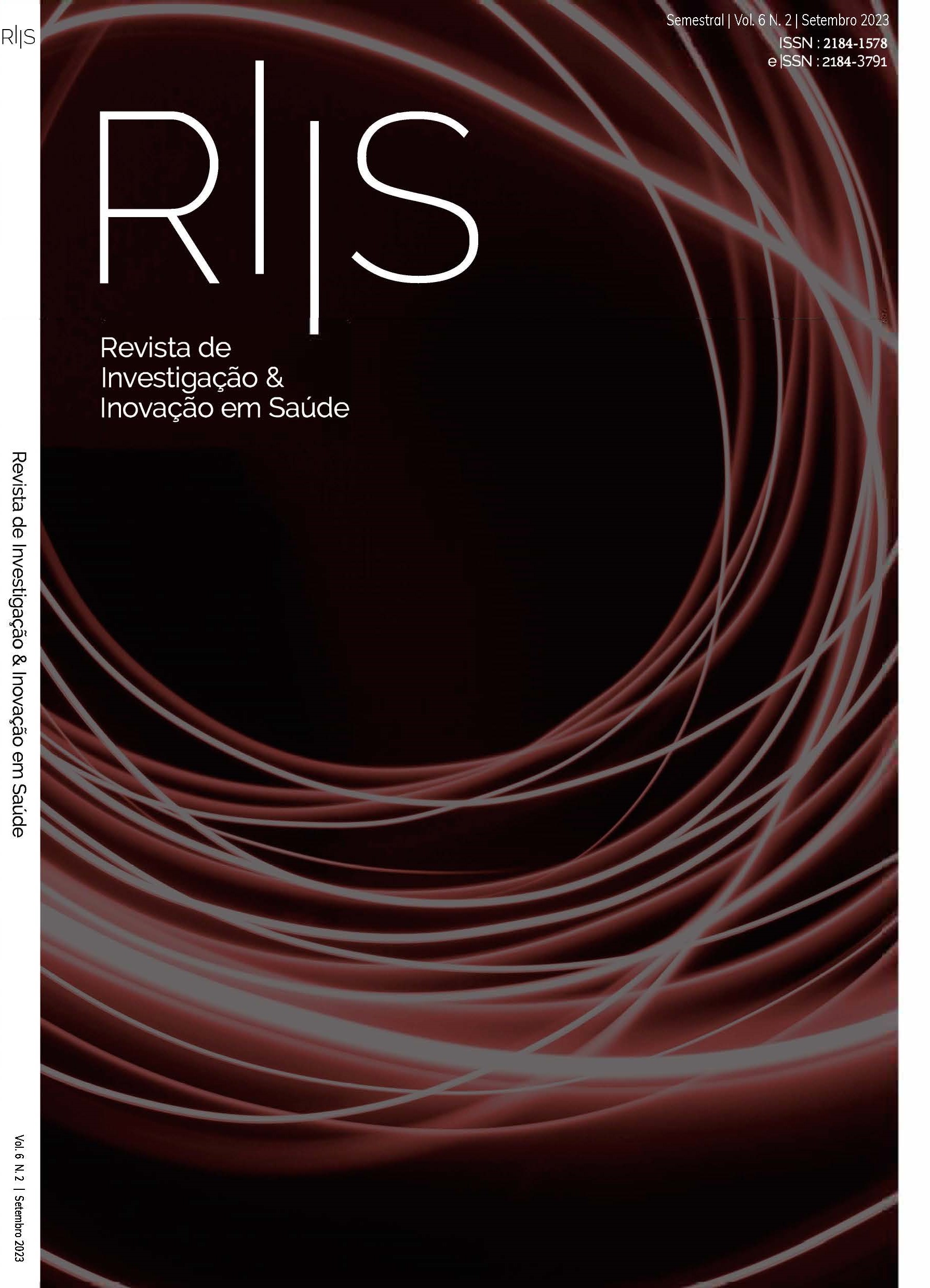Application of the Dynamic Model for Evaluation and Family Intervention in Palliative Care
DOI:
https://doi.org/10.37914/riis.v7i1.306Keywords:
nursing diagnosis, family nursing, family relations, palliative careAbstract
Context: the needs of the family with patients in palliative care are complex, and they need ongoing assessment and support. The nurses who look after these families have the Dynamic Model for Evaluation and Family Intervention (DMEFI) as a theoretical and operational reference to assist them. Objective: determine the health benefits of implementing the DMEFI in the nursing of the family with patients in palliative care. Methodology: quantitative, descriptive and transversal study of 15 families. Data was collected at an oncology regional hospital where DMEFI was applied to family visits and care. Results: of the 271 diagnoses made, the DMEFI functional dimension represented 139 (51.3%). In the family process, 63 (45.3%) diagnoses were made, of which 47 (74.6%) were resolved. Professional caregivers identified, 76 (54.7%) diagnoses with, 54 (71%) been resolved. Conclusion: the DMEFI made it possible to obtain health gains among families, as collaborative interventions with families allowed the resolution of diagnoses in the functional dimension. The DMEFI demonstrated applicability in the functional dimension of care for families of people in palliative conditions.
References
Araújo, D. (2022). Intervenções de Enfermagem destinadas ao Cuidador Informal da Pessoa em Cuidados Paliativos: Uma Scoping Review. (Projecto de Graduação apresentado à Escola Superior de Saúde - Fernando Pessoa como parte dos requisitos para obtenção do grau de licenciado em Enfermagem). Porto. 2022. Disponível a partir de: https://bdigital.ufp.pt/bitstream/10284/11613/1/PG_30448.pdf
Areias, N., Major, S. & Relvas, A. (2017). Necessidades dos familiares de doentes terminais em cuidados paliativos: revisão crítica da literatura. Psychologica, 60, (1), 137 152. https://pdfs.semanticscholar.org/23c6/f9de59a12cad61245826951142d2a1404d55.pdf DOI: https://doi.org/10.14195/1647-8606_60-1_8
Cardoso, F., Turpin, E., & Valente, R. (2021). Percepções Sobre Cuidados Paliativos. Medicina Interna, 28(2), 202–203. https://doi.org/10.24950/ce/50/21/2/2021 DOI: https://doi.org/10.24950/CE/50/21/2/2021
Correia, J. (2018). A Satisfação do Cuidador Informal em Cuidados Paliativos: O Que a Influencia? – A Realidade de Portugal (Dissertação apresentada ao Instituto de Ciências da Saúde da Universidade Católica Portuguesa para obtenção do grau de Mestre em Cuidados Paliativos). Universidade Católica Portuguesa, Lisboa.
Cruz, D. C. M., Loureiro, H. A. M., Silva, M. A. N. C. G. M. M., & Fernandes, M. M. F. (2010). As vivências do cuidador informal do idoso dependente. Revista de Enfermagem Referência, 2, 127 136. DOI: https://doi.org/10.12707/RIII1018
Decreto-Lei n.º 52/2012 de 05 de Setembro (2012). Diário da República n.º 172/2012 – I Série. Ministério da saúde. Lisboa, Portugal. https://dre.pt/pesquisa/-/search/174841/details/maximized
Espindola, A., Quintana, A., Farias, C., München, M. (2018). Relações familiares no contexto dos cuidados paliativos. Revista Bioética, 26, (3), 371-377. https://www.scielo.br/j/bioet/a/Ch9XHLjq73XgnhrMVSpNx4y/?lang=pt&format=pdf DOI: https://doi.org/10.1590/1983-80422018263256
Ferreira et al. (2020). Ganhos em saúde familiar sensíveis ao modelo dinâmico de avaliação/intervenção familiar. Revista de Investigação & Inovação em Saúde, 3, (2), https://doi.org/10.37914/riis.v3i2.84 DOI: https://doi.org/10.37914/riis.v3i2.84
Figueiredo, M. (2012). Modelo Dinâmico de Avaliação e Intervenção Familiar: Uma Abordagem Colaborativa em Enfermagem de Família. Loures: Lusociência, 2012
Guarda, H.; Galvão, C. & Gonçalves, M. J. (2010). Apoio à família. In Barbosa, A., Neto, I. Manual de Cuidados Paliativos. 2.ª Ed. Faculdade de Medicina da Universidade de Lisboa. ISBN 978 972 9349 22 5.
Instituto Nacional de Estatística - Censos 2021. XVI Recenseamento Geral da População. VI Recenseamento Geral da Habitação: Resultados definitivos.
Lisboa: INE, 2022. Disponível na www: https://www.ine.pt/xurl/pub/65586079>. ISSN 0872-6493. ISBN 978-989-25-0619-7
Kristjanson, L. & White, K. (2002). Clinical support for families in the palliative care phase of hematologic or oncologic illness. Hematology/Oncology Clinics North America, 16, 745-762. DOI: https://doi.org/10.1016/S0889-8588(02)00023-0
McCauley, R., McQuillan, R., Ryan, K., & Foley, G. (2021). Mutual support between patients and family caregivers in palliative care: A systematic review and narrative synthesis. In Palliative Medicine (Vol. 35, Issue 5, pp. 875–885). SAGE Publications Ltd. https://doi.org/10.1177/0269216321999962 DOI: https://doi.org/10.1177/0269216321999962
Ordem dos Enfermeiros, 2011. Regulamento dos Padrões de Qualidade dos Cuidados Especializados em Enfermagem de Saúde Familiar. https://www.ordemenfermeiros.pt/arquivo/colegios/Documents/PQCEESaudeFamiliar.pdf
Pires, E. (2016). A importância das famílias nos cuidados de enfermagem: A visão do enfermeiro de família (Dissertação para obtenção do grau de Mestre em Enfermagem de Saúde Familiar). Escola Superior de Saúde de Bragança, Bragança.
Seibel et al., 2017. Rede de apoio social e funcionamento familiar: estudo longitudinal sobre famílias em vulnerabilidade social. Pensando Famílias, 21, (1), 120-136. https://www.researchgate.net/publication/320501876_Rede_de_apoio_social_e_funcionamento_familiar_estudo_longitudinal_sobre_familias_em_vulnerabilidade_social
Sequeira, C., Lange, C., Sousa, L., & Llano, P. (2018). Cuidar de Idosos com Dependência Física e Mental(2ª ed.). Lisboa: Lidel.
WHO, 2021. Palliative care. https://www.who.int/health-topics/palliative-care
Zwicker, J., Smith, I. C., Rice, J., Murphy, R., Breiner, A., McNeely, S., Duff, M., Buenger, U., Zehrt, B., Nogo, D., & Watt, C. L. (2023). Palliative care at any stage of amyotrophic lateral sclerosis: a prospective feasibility study. Frontiers in Medicine, 10. https://doi.org/10.3389/fmed.2023.1204816 DOI: https://doi.org/10.3389/fmed.2023.1204816
Downloads
Published
How to Cite
Issue
Section
License
Copyright (c) 2024 Sílvia Ferreira Santos, Ana Maria Rocha , Bárbara Maduro , Cátia Ferreira , Luis Martins, Pureza Belo , Manuela Ferreira

This work is licensed under a Creative Commons Attribution 4.0 International License.















